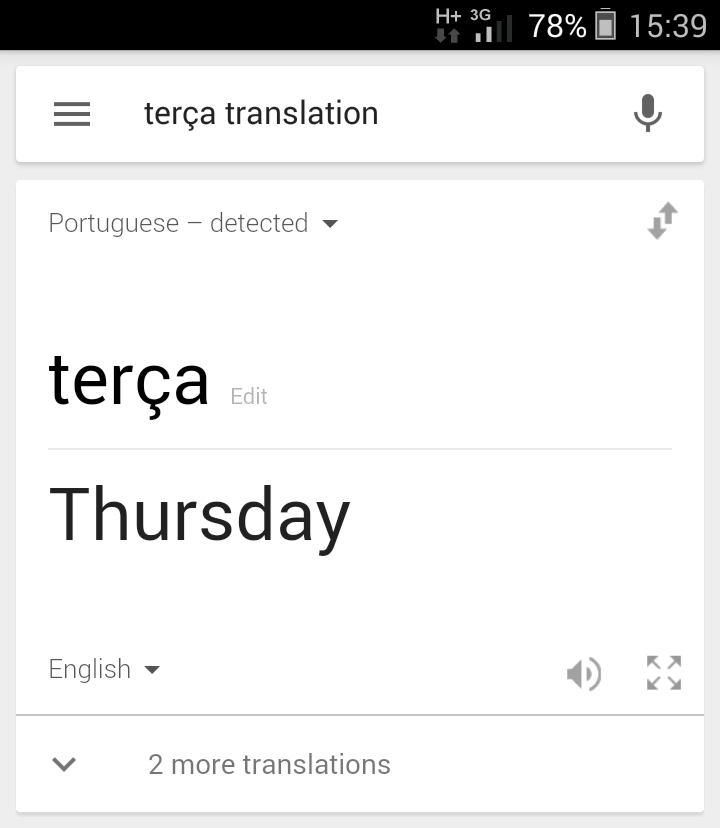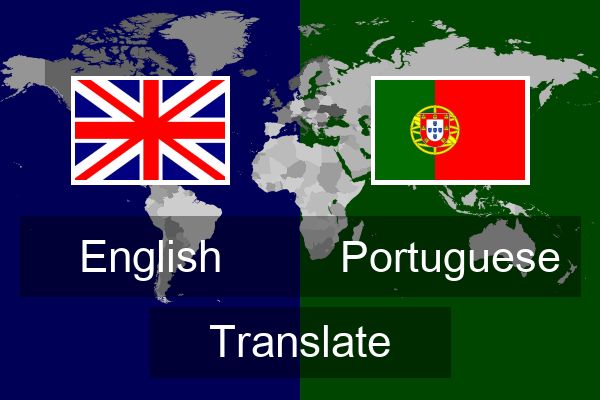Top Tips for Perfect English to Portuguese Translation Services
Attaining extraordinary English to Portuguese translation requires more than plain word-for-word conversion; it demands an understanding of social subtleties and etymological ins and outs. Choosing qualified translators that are both culturally aware and fluent is critical. Similarly important is the practice of localization, which involves tailoring material to local variants. In addition, employing contextual referrals ensures that the original tone and significance are protected. Nevertheless, the journey does not end there; a rigorous testimonial and editing and enhancing process is essential. What various other important variables should be taken into consideration to boost translation top quality additionally?
Understand Cultural Nuances
When converting from English to Portuguese, realizing the social nuances is important for generating a exact and powerful text. The Portuguese-speaking globe is diverse, encompassing various areas, each with its distinctive customizeds, idioms, and social norms. A translator should be in harmony with these nuances to guarantee that the translation not only communicates the intended message but also resonates with the target market.
As an example, idiomatic expressions in English might not have direct counterparts in Portuguese. An expression that functions well in one culture could cause complication or false impression in an additional. Understanding local dialects and variations, such as those located in Brazil and Portugal, is crucial; words may hold different connotations or uses depending on the place.
Additionally, cultural context plays a substantial duty in translation. Factor to consider of historic, social, and political variables can influence language choices and tone. This social awareness enables the adaptation of web content that lines up with regional worths and assumptions, thus boosting the effectiveness of interaction. Ultimately, a detailed understanding of cultural subtleties is crucial for supplying translations that are not just linguistically precise yet likewise culturally pertinent and engaging.
Pick Certified Translators
Choosing qualified translators is a critical step in ensuring the accuracy and high quality of English to Portuguese translations. A translator's expertise not just includes language effectiveness but also a deep understanding of social context, colloquial expressions, and industry-specific terms. When picking a translator, prioritize those with official training in translation research studies or linguistics, as well as appropriate certifications that show their professional capability.
Experience plays a pivotal function too; translators specializing in certain fields-- such as legal, medical, or technical-- are more probable to supply exact translations customized to the industry's standards (English To Portuguese Translation). Additionally, consider their portfolio and client reviews to evaluate their previous job high quality and dependability
Engage translators that are indigenous Portuguese speakers, as they have a natural understanding of the language's nuances and local languages. This experience improves the translation's authenticity and effectiveness.
Use Contextual Referrals

When equating, it is important to acknowledge colloquial expressions and cultural referrals that might not have direct matchings in Portuguese. Certain phrases that resonate in English could require adjustment to convey the very same emotional weight or cultural value in Portuguese. Employing contextual recommendations can aid translators select the right terms and design, thereby improving the total clearness and effect of the translation.

Focus on Localization
Localization plays a critical function in the translation procedure from English to Portuguese, as it ensures that the converted material is appropriate and culturally ideal to the target market. English To Portuguese Translation. This process surpasses mere translation; it involves adapting the content to the i thought about this social, social, and etymological nuances specific to Portuguese-speaking regions
Recognizing local expressions, customizeds, and preferences is important. Specific expressions or references that resonate with an English-speaking target market may not have the very same impact on Portuguese audio speakers. It is vital to consider local variants, such as Brazilian Portuguese versus European Portuguese, as each has unique vocabulary and stylistic distinctions.
In addition, localization includes format, such as day and time formats, money, and dimension devices, which can differ considerably throughout cultures. This attention to detail cultivates a link with the target market, boosting involvement and understanding.
Furthermore, utilizing regional dialects and slang can supply authenticity, making the content a lot more relatable. By focusing on localization in English to Portuguese translation, organizations can properly interact their message, build count on with their target market, and eventually attain their designated purposes.
Evaluation and Edit Thoroughly
Detailed review and editing are important actions in the translation process, specifically when transforming English web content right into Portuguese. This stage ensures that the converted material not only preserves the original significance however also resonates well with the target market. Provided the cultural and etymological subtleties, a careful approach to review and editing and enhancing is necessary.
Begin by contrasting the original English message with the Portuguese translation, paying attention to tone, terminology, and context. this hyperlink It's crucial to make certain that colloquial expressions and social referrals are properly adapted for the Portuguese target market. Engaging a 2nd translator or a native audio speaker for this testimonial process can give invaluable insights and capture mistakes that might have been overlooked.
Additionally, check for grammatical precision and stylistic consistency throughout the document. Common obstacles such as unclear phrases or incorrect cognates ought to be addressed to avoid misconception.
Final Thought
Attaining phenomenal English to Portuguese translation solutions demands a comprehensive method that incorporates understanding social subtleties, selecting qualified translators, utilizing contextual referrals, focusing on localization, and carrying out thorough evaluations and edits. Each element plays a vital role in ensuring that translations are not only exact but also resonate with the target audience. By carrying out these methods, companies can improve the effectiveness of their communication and promote a much deeper connection with Portuguese-speaking audiences.
Achieving exceptional English to company website Portuguese translation requires even more than plain word-for-word conversion; it demands an understanding of etymological ins and outs and cultural nuances.Selecting certified translators is an important step in guaranteeing the precision and quality of English to Portuguese translations.Extensive testimonial and modifying are crucial steps in the translation process, specifically when transforming English web content right into Portuguese.Begin by comparing the initial English message with the Portuguese translation, paying close focus to tone, context, and terms.Achieving outstanding English to Portuguese translation solutions necessitates a thorough method that includes understanding social subtleties, choosing qualified translators, making use of contextual referrals, prioritizing localization, and performing extensive reviews and edits.